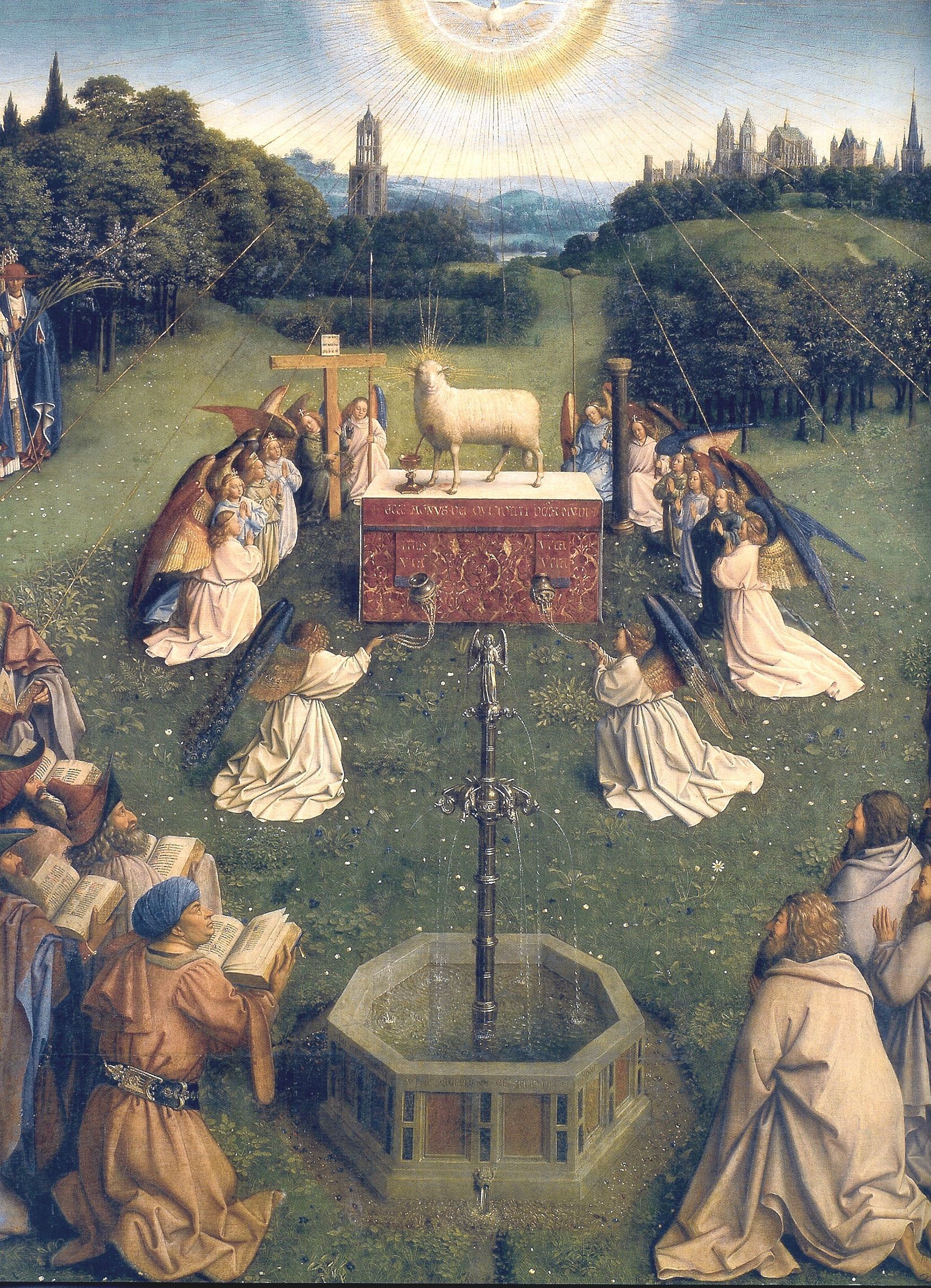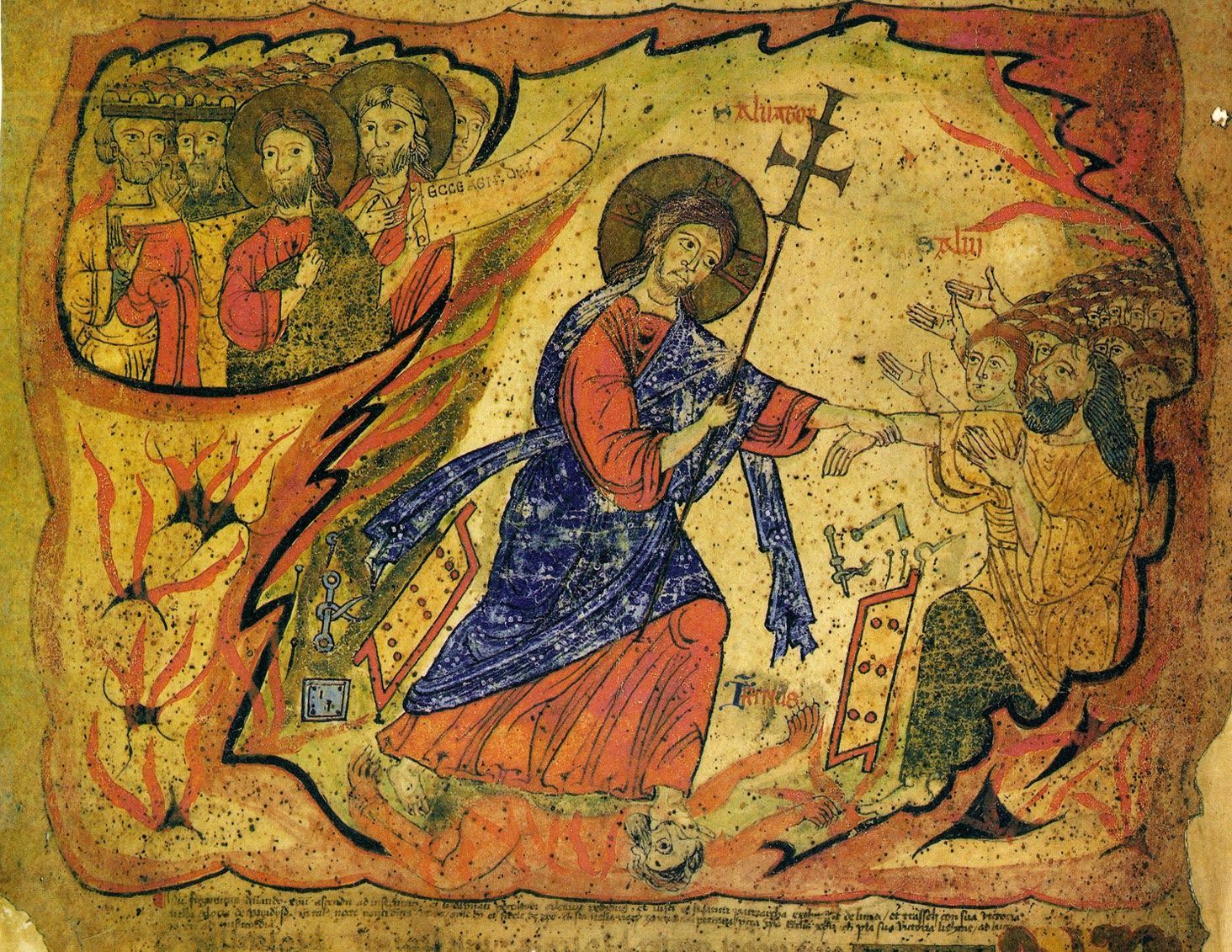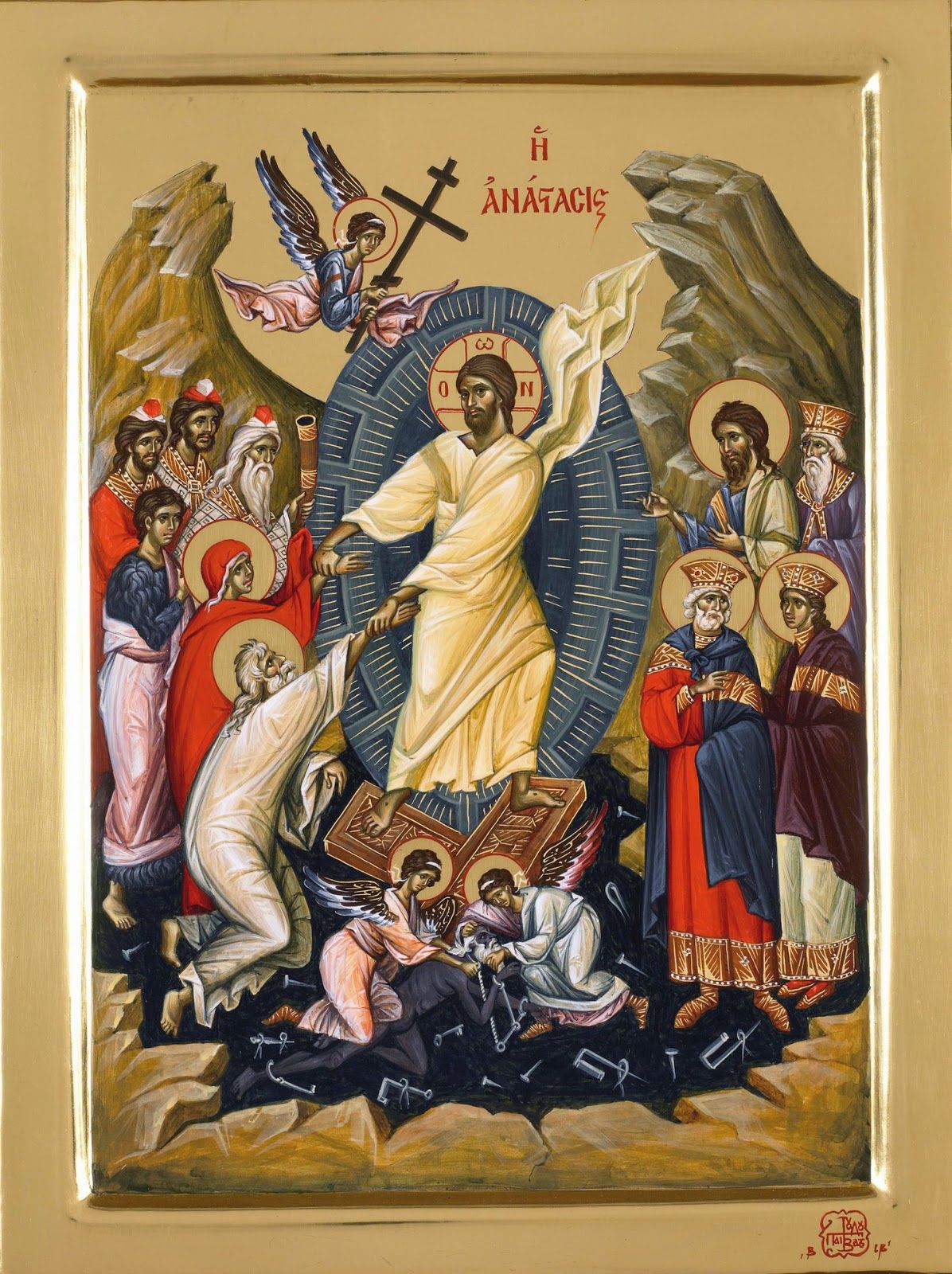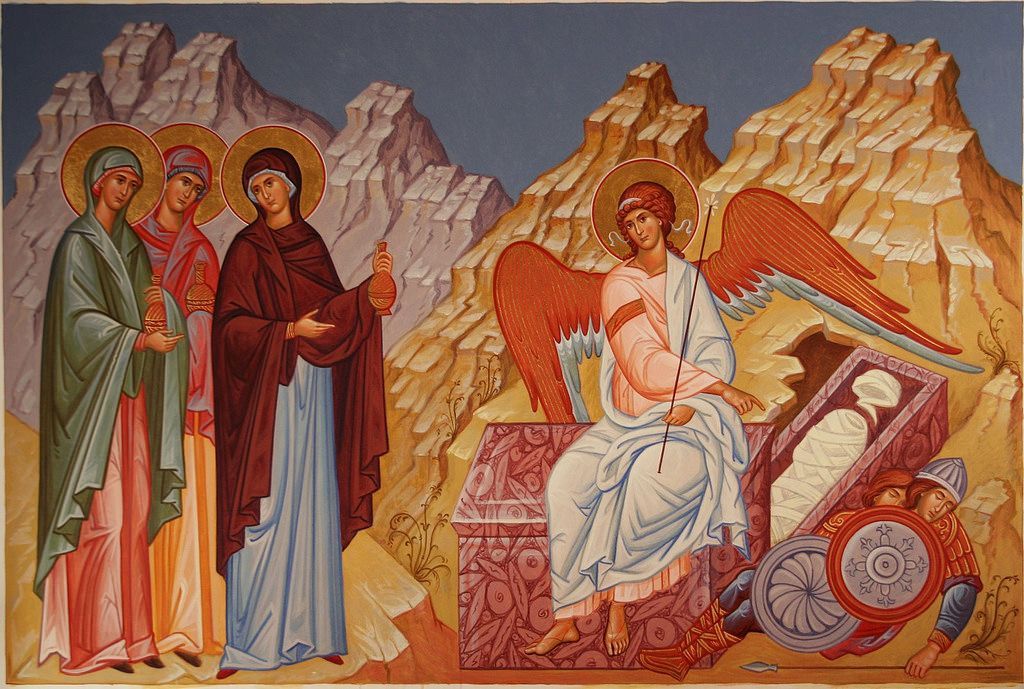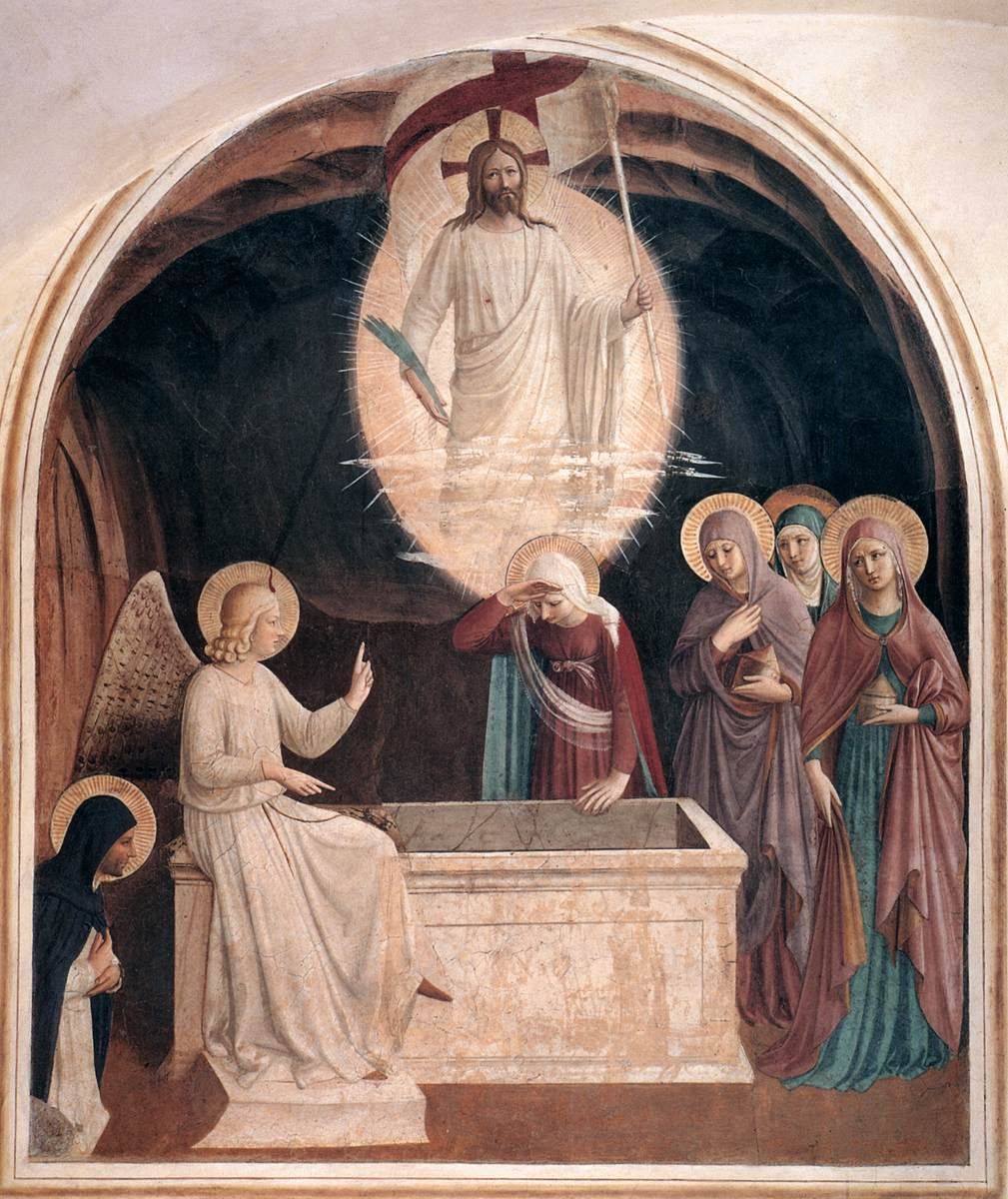Message of Abbot Paul - Easter Sunday - 31st March 2024
Abbot Paul • March 30, 2024
A very happy and blessed Easter to all who happen to read this message today, the day of Our Lord’s Resurrection. But before I begin, I would like to tell you of an unexpected experience I had on Good Friday evening. After the celebration of the Lord’s Passion at Leominster, such a powerfully prayerful service, I was driving to Bromyard to have a light supper with friends, when by mistake I tuned into Radio 2. The most amazing programme was on the air, At the Foot of the Cross. I thought there must be some mistake, as it sounded like a Christian radio station. Had the Chinese been messing around with the BBC? But no, it was the Rev Kate Bottley, and what a wonderful programme it was. I recommend you listen to it.
“Then the other disciple, who had reached the tomb first, also went in; he saw and he believed.” What did he see and what did he believe? He saw nothing but an empty tomb with the linen cloths lying on the ground. At the end of the gospel, we are told what he believed, “that Jesus is the Christ, the Son of God,” and that we have life in his Name. On that first Easter Day, John has the Beloved Disciple come to faith in the risen Lord on the evidence of an empty tomb alone. The Letter to the Hebrews says, “Faith is the assurance of things hoped for, the conviction of things not seen.”
The joy and beauty of our Easter celebrations cannot alter the fact that the true significance of this day is far harder for us to appreciate than the meaning of Christmas or Good Friday. We believe that God stepped into our world at Bethlehem to become part of human history and this causes a ray of light to fall even on those who do not have faith. Passion and death also reflect the world in which we live and our own experience of suffering. Much as we try to avoid the thought, we know that death awaits us all and that one day we will give in to a force far greater than ourselves. We celebrate Holy Week, grateful that God has shared with us the anguish and pain of suffering and death. But Easter is different. In his resurrection, Jesus has not entered into the ordinary life of human beings; rather he has broken through its limitations and entered a new realm beyond our understanding. This is unknown territory for us all. God leads us into a vast, uncharted expanse and encourages us to follow him. Since we are only acquainted with things on this side of the grave, there is nothing in our experience that connects us with the news that Jesus is risen from the dead.
Easter centres on something unimaginable and, in human thought and language, inexplicable and indescribable. The doubts of the disciples and their confusion cry out to us from every page of the resurrection accounts, culminating in the words of Thomas, “Unless I see the holes that the nails made in his hands and can put my finger into the holes they made, and unless I can put my hand into his side, I refuse to believe.” Then, like Cleopas and his companion on the road to Emmaus, there is their inability to recognise Jesus. Only when he was at table with them, were their eyes opened as they recognised him in the breaking of bread. One of the strangest features of the resurrection narratives is his unrecognizability. For most of the disciples, an encounter with the risen Christ begins as a meeting with a stranger and Jesus often condemns the inadequacy of their earlier understanding. Mary Magdalene thought he was the gardener. Rowan Williams writes, “Jesus is not what they have thought him to be, and thus they must ‘learn’ him afresh, as if from the beginning. Once again, John crystallises this most powerfully by presenting the disciples in their fishing boats, as if they had never known Jesus: they must begin again.”
Neither the disciples nor the evangelists, nor has the Church ever tried to iron out the discrepancies between the various accounts of the Resurrection. The risen Christ was not a projection of the hopes of the first Christian community. The Resurrection of Jesus remains the greatest of all mysteries and yet it lies at the very heart of the Christian faith. “Blessed are those who have not seen and yet believe.” The Church has always translated the Easter message into symbols, which point to things that words cannot express. The Paschal fire and the Paschal candle, for wherever light conquers darkness, something of the Resurrection takes place. Water, which can be both lifegiving and life-threatening, is blessed for baptism so that we might die to sin and rise to new life in Christ. We bless people and things with holy water in order to establish oases of life and hope in the desert places of our world. With the constant singing of Alleluia, we join in the song of the angels in heaven, where every tear shall be wiped away and every sorrow and lament be ended.
Like the beloved disciple, we have seen and we believe. We do not ask to see more than an empty tomb and we must be content to recognise Jesus in the breaking of bread and to hear his voice as he explains the Scriptures to us. Every day, encouraged by the celebration of the Easter mystery, we learn anew what it means to be a disciple of the Risen Saviour as we walk in faith. Faith is the greatest adventure there is, an invitation to go much further than we had anticipated or foreseen. It is a window that opens out onto eternal life. Jesus asks us not to be afraid, but to trust in him and follow him through darkness into light and from death to life. To Jesus Christ, risen from the dead, be glory and praise for ever. Alleluia. Amen.

